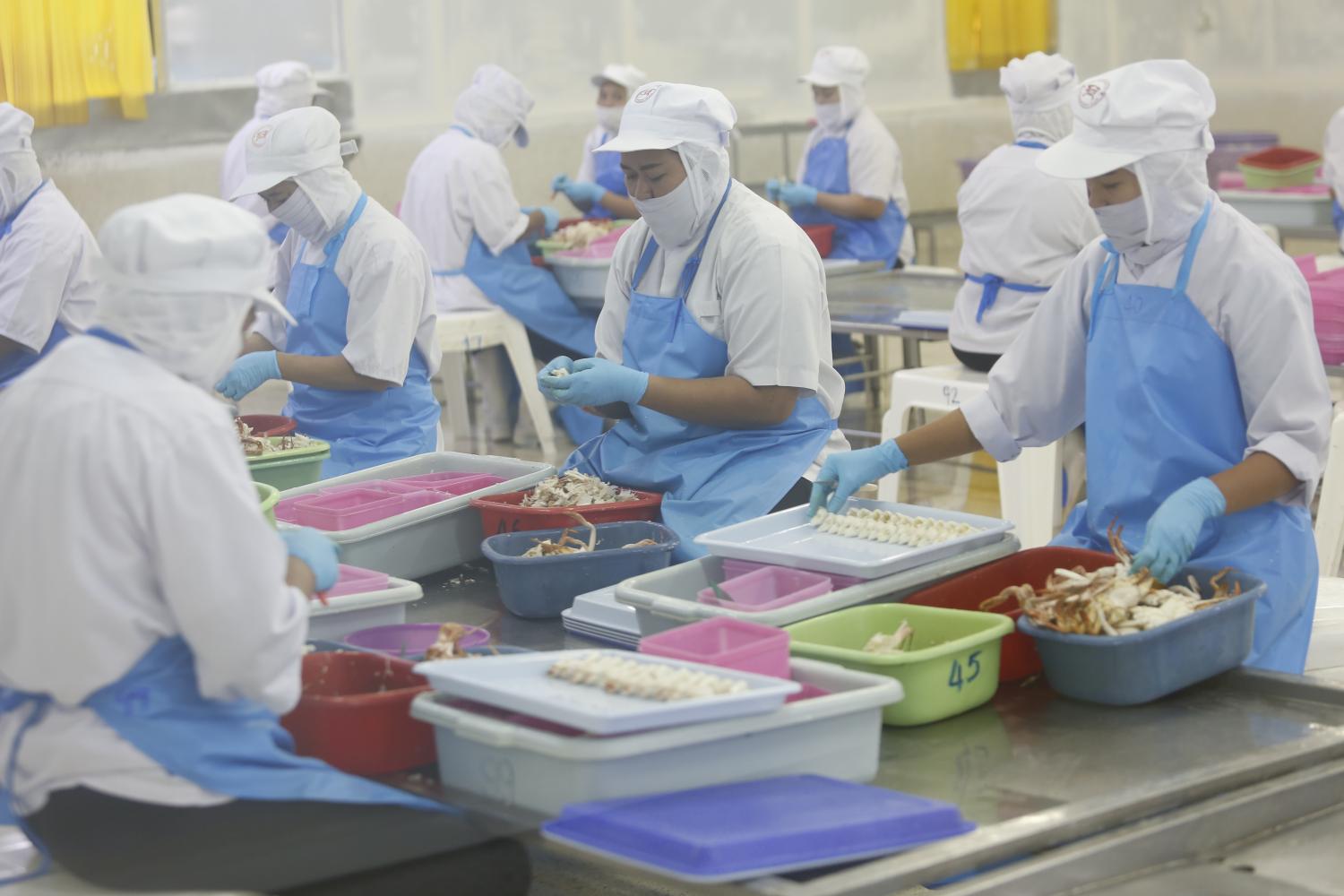
Smaller firms may delay investment and recruitment next year because of the recent minimum wage increase of 5-6 baht per day, says the Federation of Thai SMEs.
Last Friday, the national wage committee agreed to hike the daily minimum wage from 308-330 baht to 313-336 baht. The panel will propose the rise to the cabinet to take effect from Jan 1.
Unskilled workers in most provinces will be entitled to 315-320 baht a day.
President Chonrungsee Chalermchaikit said overall economic sentiment in Thailand is unfavourable for the wage hike.
She said the business sector is suffering from myriad negative factors such as bearish exports, the US-China trade war, the strong baht and an unstable global economy.
Small and medium-sized enterprises cannot afford higher labour costs amid the economic gloom, Ms Chonrungsee said.
"The sluggish economy will impact local companies, purchasing power and crop prices," she said. "2020 is another tough year for everyone."
Many SMEs could shut down next year, leaving fresh graduates struggling to find work, Ms Chonrungsee said.
Members of the federation include roughly 100,000 companies, most of them employing unskilled labourers.
"SMEs normally hire 10-50 workers per company, largely in the agriculture, food and tourism sectors," Ms Chonrungsee said. "The government's stimulus packages were launched with the purpose of boosting the economy, particularly the retail sector, but those measures are just for a short-term period."
The federation is calling on the government to launch mid- and long-term measures in order to support sustainable growth of the economy.
Thailand has 2.7 million SMEs, Ms Chonrungsee said. The wage hike will have a greater impact on them than on the large companies that can absorb the cost, she said.
There are 38 million Thais in the labour market, plus 3.5 million migrant workers, mostly from Myanmar, Cambodia and Laos.
Suchart Chantaranakaracha, vice-chairman for labour affairs at the Federation of Thai Industries, said the current wage rates are competitive enough to suit economic sentiment amid internal and external difficulties.
"But there is the action from the wage committee, and all companies nationwide will have to comply with the new rates in 2020," he said. "We understand that the committee considered the hikes in line with the inflation rate projection, Thai economic growth, business competitiveness and employees' needs."
Mr Suchart said the increase of 5-6 baht is acceptable based on the 0.8-1.2% inflation rate and the 2.7-3% GDP growth forecast for 2020.
Tanit Sorat, vice-chairman of the Employers' Confederation of Thai Trade and Industry, said the strong baht and the export contraction are pressuring the economy.
"If the government can carry out its support for crop prices to reach a high level, it can drive the economy to expand further," he said. "The economy is still looking unhealthy in 2020, while business operators forecast that a drought situation will affect farm prices. Therefore the government should prepare for this climate matter and seek new measures to tackle the problem."